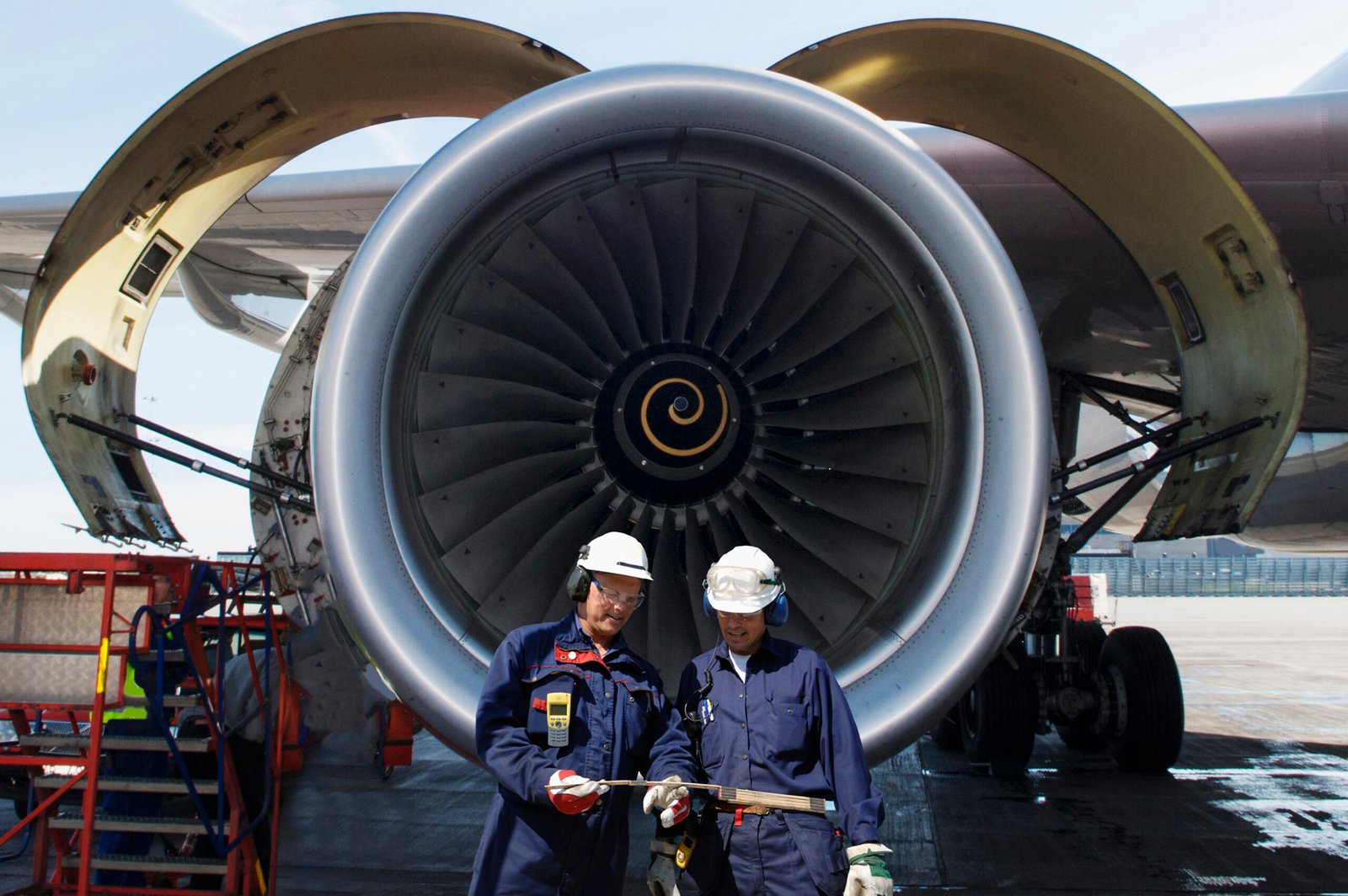Aviation Education
Aviation Careers: Navigating the Skies of Opportunity
The aviation industry is a sprawling landscape of opportunities, beckoning those who dream of soaring through the skies. Whether you envision yourself as a pilot, air traffic controller, aircraft mechanic, or flight attendant, various educational pathways can set you on the right course. Understanding what aviation schools offer can help you find your niche in this dynamic field.
*Types of Aviation Courses**
Aviation schools provide a plethora of courses tailored to different career aspirations. Here are some types to consider:
1. **Pilot Training Programs**: These courses focus on imparting essential flying skills and knowledge about aircraft operations. They often include both ground school—where students learn aerodynamics, navigation, and weather—and in-flight training.
2. **Air Traffic Control (ATC) Programs**: ATC courses teach students how to manage aircraft safely and efficiently within controlled airspace. Aspiring controllers gain insight into communication protocols and radar systems through simulation exercises.
3. **Aircraft Maintenance Engineering**: This technical pathway equips students with hands-on skills required for maintaining and repairing aircraft. Courses cover everything from electrical systems to structural integrity and comply with FAA regulations.
4. **Aviation Management Degrees**: Ideal for those aiming for leadership roles in airlines or airports, these programs blend business principles with aviation-specific subjects like logistics and safety management.
5. **Flight Dispatch Training**: Flight dispatchers play a crucial role in ensuring that flights operate smoothly by planning routes and managing schedules. Specialized courses prepare students for this fast-paced environment.
6. **Specialized Certifications**: Many aviation schools also offer short-term certifications in areas such as drone piloting or safety management systems—perfect for those looking to enhance their employability without committing to long-term education.
With so many options available, potential aviators have plenty of choices tailored to their interests!
*Online Resources for Aviation Enthusiasts**
In today’s digital age, staying informed is more accessible than ever! There’s an abundance of blogs, websites, and social media platforms dedicated to aviation topics:
*Blogs*: Check out sites like *AirlineReporter*, which features news about airlines; *Flying Magazine*, offering tips from seasoned pilots; or *The Air Current*, focusing on industry analysis.
*Websites*: The FAA’s official site is invaluable for information on regulations and licensing requirements. Additionally, organizations like AOPA (Aircraft Owners and Pilots Association) provide resources tailored for pilots at all levels.
*Social Media*: Platforms like Instagram showcase stunning aerial photography under hashtags such as #aviationlovers or #flyinghigh. Twitter accounts like @AvGeekGirl share daily insights into aviation trends that can help broaden your knowledge base.
*FAA Flight Schools & Simulators**
When it comes to practical training, FAA-approved flight schools are your best bet—they meet strict guidelines ensuring quality education. Institutions such as Embry-Riddle Aeronautical University and ATP Flight School have garnered reputations as leading providers of pilot training across the United States.


For those seeking hands-on experience without immediate access to an aircraft, simulators serve as excellent alternatives! Advanced flight simulators mimic real-life scenarios allowing aspiring pilots to practice maneuvers safely before taking off into the skies themselves.
As you embark on this exciting journey through the world of aviation careers, remember that every takeoff begins with a solid foundation—education being paramount! Equip yourself with knowledge from reputable sources while honing your skills at top-notch institutions, paving your way toward a rewarding career navigating the skies of opportunity!
The Future of Flight: Innovations Reshaping the Aviation Industry
The aviation industry stands on the precipice of a remarkable transformation. As technology surges ahead, educational institutions are evolving to meet the demands of this ever-changing field. Today’s aspiring aviators have access to an array of specialized aviation schools offering diverse courses that cater to their ambitions.
*Aviation Schools and Course Types**
In the realm of pilot training, schools typically fall into several categories, each designed to fulfill specific needs.
1. **Traditional Flight Schools**: These institutions focus primarily on hands-on flight training, blending ground school with actual flying hours. Students often earn their Private Pilot License (PPL) and move on to more advanced certifications.
2. **Community Colleges**: Many community colleges offer associate degrees in Aviation Technology or Professional Pilot Programs. These programs provide a more comprehensive education, blending technical skills with general studies.
3. **Four-Year Universities**: For those seeking a bachelor’s degree, universities like Embry-Riddle Aeronautical University or Purdue University offer robust aviation programs that cover everything from aeronautics to air traffic control and management.
4. **Online Courses and Simulator Training**: With technological advancements, online platforms now provide virtual training modules for aspiring pilots or mechanics who want flexibility in their learning schedules without sacrificing quality education.
5. **Specialized Training Centers**: Focused on niche areas such as drone piloting or helicopter operations, these centers equip students with cutting-edge skills tailored for specific segments of aviation.
As future aviators embark on their educational journeys, they can also tap into a wealth of resources available online through blogs and websites dedicated to all things aviation.
*Aviation Blogs and Websites**
The digital landscape hosts numerous blogs and websites teeming with valuable insights about the industry:
**AirlineReporter.com**: This site covers airline news and travel tips while sharing personal experiences.
**FlyingMag.com**: A go-to resource for enthusiastic pilots featuring articles on aircraft reviews and pilot stories.
**Jetwhine.com**: Offering commentary on various facets of aviation, from policy discussions to technological innovations.
**AvGeekery.com**: Celebrating aviation enthusiasts’ passion through exciting stories about aircraft history and modern developments.
Social media platforms have also become pivotal in connecting aviation lovers:
Twitter has vibrant communities under hashtags like #AvGeek or #PilotLife where professionals share experiences.
Instagram showcases breathtaking aerial photographs through accounts like @aviationdaily or @planespotting which inspire future generations.
Facebook groups dedicated to pilots allow members to exchange tips and networking opportunities seamlessly.
*FAA Flight Schools & Simulators**
For practical training rigorously aligned with government standards, FAA-approved flight schools provide structured curricula ensuring student safety while honing essential skills. These accredited institutions offer comprehensive programs covering everything from private licenses to advanced ratings.
Additionally, simulators play an increasingly crucial role in pilot training by providing safe environments where students can practice emergency procedures without real-world risks. Advanced full-motion simulators accurately replicate cockpit environments allowing trainees to encounter various scenarios—essential for building confidence before taking real flights.
In conclusion, as innovations continue reshaping the horizon of flight education—from diverse course offerings at aviation schools to dynamic online platforms for knowledge-sharing—the future looks promisingly bright for aspiring aviators around the globe. The journey may be challenging but is undoubtedly exhilarating; equipped with cutting-edge tools and information today’s learners are poised not just to fly but soar!

The Future of Flight: Innovations Shaping the Aviation Industry
As we soar into a new era of aviation, an array of innovations is transforming how we think about flight. From advanced training methodologies to cutting-edge technology in aircraft design, the possibilities are endless. In this blog post, we’ll explore the types of aviation schools available today and highlight essential resources for aspiring aviators.

### Aviation Schools by Types of Courses
Aviation education has diversified dramatically over recent years, accommodating various career paths within the industry. Here are some notable types of courses you might find:
1. **Pilot Training Programs**: These programs focus on teaching students how to fly different aircraft. They typically include ground school lessons covering aerodynamics, meteorology, navigation, and regulations, followed by actual flight training with certified instructors.
2. **Aircraft Maintenance Engineering**: For those intrigued by the mechanical side of aviation, these courses cover everything from basic avionics to complex systems maintenance. Students learn essential skills that ensure airplanes remain safe and efficient.
3. **Air Traffic Control Training**: This specialized program prepares individuals for one of the most demanding roles in aviation—managing air traffic safely and efficiently. Students undergo rigorous training that combines theoretical knowledge with practical simulations.
4. **Aviation Management Degrees**: Focusing on the business aspect of flying, these courses delve into airport operations, airline management, and regulatory issues affecting the industry. Graduates often find themselves well-prepared for leadership roles in various sectors.
5. **Commercial Drone Operations**: With drones becoming increasingly prevalent in many industries—from agriculture to photography—courses focusing on drone piloting are gaining popularity. They teach students about regulations and operational protocols specific to unmanned aerial vehicles (UAVs).
### Lists of Aviation Blogs, Websites, Social Media Sites
The digital landscape is teeming with valuable resources for aviation enthusiasts and professionals alike. Here’s a curated list to help you navigate through it all:
**Blogs**:
– *AirlineReporter*: Focuses on airline news and travel experiences.
– *Flying Magazine*: Offers insights ranging from pilot tips to aircraft reviews.
– *Jetwhine*: An engaging take on aviation topics including technology advancements.
**Websites**:
– *AOPA (Aircraft Owners and Pilots Association)*: A hub for pilots seeking resources and advocacy.
– *FlightAware*: Real-time information about flights worldwide.
– *AvGeekery*: Celebrates all things aviation with articles that captivate enthusiasts.
**Social Media Sites**:
– Instagram accounts like @aviationdaily provide stunning visuals from around the world.
– YouTube channels such as *Mentour Pilot* break down complex topics into digestible content.
– Twitter handles like @FlyByWireSim keep followers updated on simulation innovations.
### FAA Flight Schools/Airplane Schools/Simulators
When it comes to formal education in flying or maintaining aircraft, FAA-approved schools lead the charge. These accredited institutions meet stringent safety standards while providing quality instruction across various disciplines:
Many FAA flight schools offer integrated programs where students can earn their private pilot licenses alongside advanced certifications like instrument ratings or commercial licenses.
Notably, airplane schools often incorporate simulator training into their curricula—an invaluable tool that allows students to practice emergency procedures without risk while gaining critical experience navigating various flight scenarios under realistic conditions.
In summary, as technological advancements continue reshaping the skies above us, so too does our approach to learning within this dynamic field. Whether you’re interested in flying high or keeping planes soaring smoothly through meticulous maintenance work or effective traffic management—the future is bright! Embrace these educational pathways and be part of the exciting evolution occurring within the world of aviation!
From Local Airports to Global Networks: The Evolution of Air Travel
The aviation industry has undergone a remarkable transformation over the past century, evolving from small, local airports serving regional flights to an expansive network connecting people and goods across the globe. This evolution is not just limited to aircraft technology but also encompasses training, resources, and information sharing within the field. As we explore the multifaceted world of aviation today, we’ll delve into various aviation schools offering specialized courses, essential online resources for enthusiasts and professionals alike, as well as FAA-approved flight schools.

### Aviation Schools by Types of Courses
Education in aviation is diverse and tailored to meet the needs of aspiring pilots and other industry professionals. Here are some common types of courses offered at various aviation schools:
1. **Pilot Training Programs**: These programs include Private Pilot License (PPL), Instrument Rating (IR), Commercial Pilot License (CPL), and Airline Transport Pilot License (ATPL). Each course builds upon the last, equipping students with necessary skills for various levels of flying.
2. **Aircraft Maintenance**: For those interested in the technical side, aircraft maintenance programs cover subjects such as airframe systems, powerplant mechanics, and avionics. Graduates often pursue certifications through the FAA.
3. **Aviation Management**: These courses focus on airport operations, airline management, and logistics. They prepare students for administrative roles within airlines or regulatory agencies.
4. **Flight Attendant Training**: Flight attendant programs prepare individuals for a career in cabin crew service with training in safety protocols, customer service skills, and emergency procedures.
5. **Air Traffic Control**: Specialized programs teach future controllers how to manage air traffic flow safely and efficiently while working under pressure.
### Lists of Aviation Blogs, Websites, Social Media Sites
In this digital age, staying informed about industry trends is easier than ever thanks to a plethora of online resources dedicated to aviation:
**Blogs**:
– *AirlineReporter*: Covers airline news from a passenger perspective.
– *Flying Magazine*: Offers insights into pilot experiences and aircraft reviews.
– *AvWeb*: Focuses on general aviation with articles on new technologies and pilot stories.
**Websites**:
– *AOPA.org*: The Aircraft Owners and Pilots Association provides invaluable resources for pilots.
– *FlightAware.com*: Real-time flight tracking information keeps you updated on global flights.
– *SkyVector.com*: An essential resource for navigation charts used by pilots worldwide.
**Social Media**:
– Twitter accounts like @AviationWeek provide breaking news updates.
– Instagram pages featuring stunning aerial photography can inspire future aviators.
– Facebook groups dedicated to specific aircraft or pilot communities foster engagement among enthusiasts.
### FAA Flight Schools/Airplane Schools/Simulators
For those serious about pursuing a career in aviation or simply wanting to take their passion further, enrolling in an FAA-approved flight school is crucial. These institutions ensure compliance with federal regulations while providing high-quality education:
**Local Flight Schools** often operate out of regional airports offering hands-on experience with trained instructors using real aircraft.
**Online Courses & Simulators** have gained popularity as they offer students flexibility alongside interactive learning experiences without leaving home. Many platforms feature advanced flight simulators that replicate real-life flying scenarios—perfecting skills before stepping into an actual cockpit.
In conclusion, the journey from local airports facilitating simple flights to a complex global network showcases how far air travel has come—and continues to evolve! With diverse educational pathways available through reputable aviation schools coupled with countless online resources at our fingertips today’s aspiring aviators are better equipped than ever before to soar high!
Soaring High: The Future of Sustainable Aviation Technologies
As the aviation industry faces mounting pressures to reduce its environmental footprint, innovative technologies are emerging that promise to revolutionize the way we fly. From electric aircraft to sustainable fuels and advanced air traffic management systems, the future of aviation is not just about reaching new heights but doing so responsibly. However, as we look toward this greener horizon, it’s essential to equip ourselves with knowledge and skills through specialized education.
*Aviation Schools: Types of Courses**
Education plays a critical role in cultivating the next generation of aviation professionals who will steer these advancements. Aviation schools offer a diverse range of courses tailored to various interests within the field. Here’s a glimpse into some popular types:

1. **Pilot Training Programs**: These programs focus on preparing aspiring pilots for both private and commercial flying careers. Students learn essential flight maneuvers, navigation techniques, and aviation regulations.
2. **Aircraft Maintenance Technology**: This course trains students in maintaining and repairing aircraft systems. Knowledge in this area is vital for ensuring safety and efficiency in operations.
3. **Aviation Management**: For those interested in the business side of aviation, this course covers airport management, airline operations, and logistics—essential for running a sustainable operation.
4. **Air Traffic Control Programs**: These intensive courses prepare individuals for managing air traffic effectively while considering fuel efficiency and minimizing delays.
5. **Sustainable Aviation Technologies**: A newer field of study focusing on eco-friendly practices such as biofuels, electric propulsion methods, and carbon offsetting strategies.
With these varied educational paths available, prospective students can find their niche while contributing to an evolving industry focused on sustainability.
*Aviation Blogs, Websites & Social Media Sites**
Staying informed about advancements in sustainable aviation is vital for enthusiasts and professionals alike. Here are some notable blogs and websites:
**Air Transport World**: An excellent source for industry news covering everything from airlines’ financials to technological innovations.
**Flying Magazine Blog**: Offers insights into pilot training tips alongside features about sustainable flying practices.
**The Air Current**: Delves deep into airline strategies and market trends with a focus on innovation.
**General Aviation News**: Provides updates on general aviation events combined with discussions about green initiatives.
Social media platforms are also bustling hubs of information:
On Twitter, follow accounts like @AeroNews or @FLIGHTGLOBAL for real-time updates.
LinkedIn groups related to aviation technology often share articles discussing ongoing research and development efforts toward sustainability.
Instagram pages like @sustainableaviation highlight eco-friendly achievements within the industry through stunning visuals.
These resources can keep you engaged with current trends while fostering connections with like-minded individuals passionate about green flying solutions.
*FAA Flight Schools/Simulator Training**
The FAA plays an integral role in regulating flight training standards across the United States—ensuring safety while fostering innovation through various flight schools equipped with state-of-the-art simulators that mimic real-world flying conditions without leaving the ground.
Flight schools endorsed by the FAA not only teach fundamental piloting skills but increasingly include modules dedicated to understanding sustainable practices such as energy-efficient flying techniques or alternative fuel utilization during training scenarios.
Simulators provide invaluable experience; they allow pilots-in-training to explore complex situations safely while honing their skills before taking off into actual skies filled with challenges—and opportunities—to implement green technologies effectively.
In conclusion, as we navigate toward a more sustainable future in aviation technology—grounded firmly by education—we find hope soaring high above us! Whether you’re embarking on your journey through one of many specialized courses or engaging with communities online dedicated to innovation in our skies—the path forward is bright indeed!




